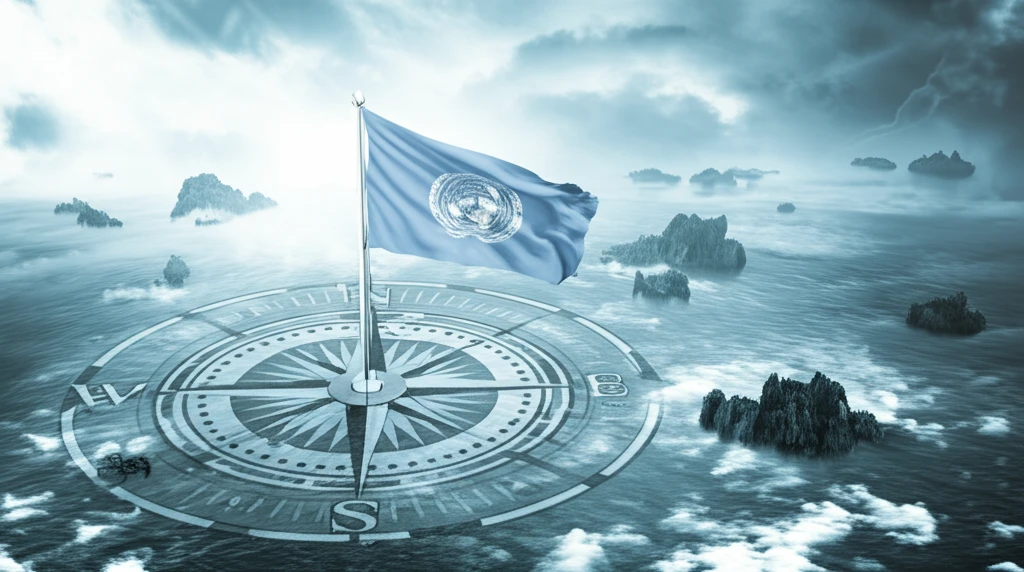
Navigating Murky Waters: Can Revisions to the UN Convention on the Law of the Sea Resolve South China Sea Disputes?
"Exploring the potential of UNCLOS revisions to address gaps and interpretations fueling tensions in the South China Sea, offering a path towards peaceful resolution."
For over two decades, the United Nations Convention on the Law of the Sea (UNCLOS) has served as a cornerstone of international maritime law. Initially hailed as a significant step towards resolving territorial disputes, the South China Sea remains a contested region, highlighting critical gaps in the convention's provisions.
The core issue lies in the differing interpretations of UNCLOS by the various nations involved. Brunei, China, Malaysia, the Philippines, and Vietnam each assert their claims, confident that their actions align with international law. This divergence underscores the urgent need to revisit and revise specific aspects of UNCLOS to foster a more unified understanding and prevent further escalation.
This article dives deep into the heart of the matter, focusing on key areas where revisions could make a tangible difference. We'll examine the contentious 'island or rock' distinction, the implications of 'straight baselines,' and the absence of provisions addressing historical claims, all of which contribute to the ongoing instability in the South China Sea.
Island or Rock? The Contentious Heart of the Matter

One of the most critical points of contention in the South China Sea revolves around the classification of land formations as either 'islands' or 'rocks,' a distinction that carries significant legal weight under UNCLOS. Article 121 stipulates that islands are entitled to generate exclusive economic zones (EEZs) and continental shelves, extending their sovereign rights over vast maritime areas. Rocks, however, defined as land features unable to sustain human habitation or economic life, do not possess these rights.
- Ambiguity in Definition: The lack of a clear, objective standard for determining 'human habitation' or 'economic life' leads to subjective interpretations and conflicting claims.
- Technological Advancement: Modern technology allows for the artificial creation of habitable conditions on even the most barren rocks, further blurring the line between islands and rocks.
- Resource Implications: The classification of a land feature directly impacts access to valuable mineral and ocean resources, making it a high-stakes issue for all claimants.
A Call for Clarity and Cooperation
The South China Sea disputes are complex and multifaceted, with deep historical roots and significant geopolitical implications. While UNCLOS has provided a framework for managing maritime issues, its ambiguities have inadvertently contributed to the ongoing tensions. By addressing these gaps through carefully considered revisions, the international community can foster a more stable and cooperative environment in the region, paving the way for peaceful resolution and shared prosperity.
